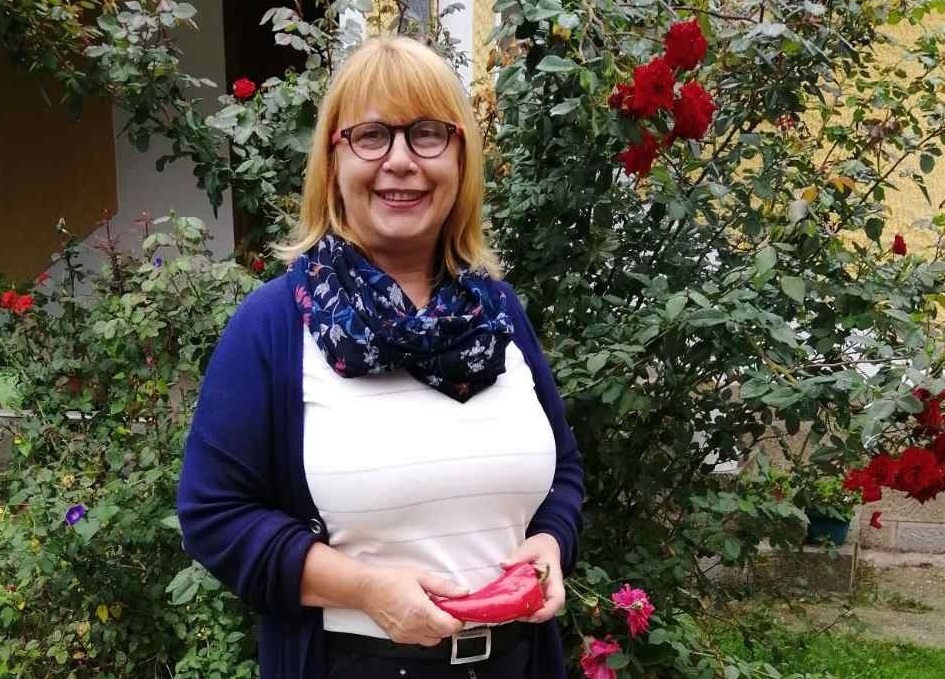Interview: “Rural women must be aware of their value and fight every day, in various ways, in this male-dominated world”
Date:

Svetlana Bogdanović, 56, is a single mother from the village of Trbušani, in central Serbia. She leads a rural household and grows corn, wheat, barley, clover and plums on land she inherited. She is one of more than 300 participants in a UN Women project implemented by the Commissioner for the Protection of Equality and funded by the Norwegian Embassy in Belgrade. The project aims to raise the awareness and confidence of rural women about protection from violence and gender-based discrimination. It focuses on their economic empowerment, as economic stability is a key factor in ending the circle of violence.
How did you join this project?
The Women’s Association “Save the Village” participated in the project as a strategic partner. The Commissioner, Ms. Janković, and head of this CSO, Mrs. Stanojević, approached me to propose that I join the project and propose a couple of women from the Moravica district who could be assigned a greenhouse. This project also provided me with useful lectures on entrepreneurship, digital marketing and preservation of the environment. In June 2022, I participated in a study trip organized by the Commissioner for Protection of Equality for women in agriculture. We visited Slovenia, Austria and Croatia and the experience was extremely useful for me in many aspects. We exchanged experiences with women in the European Union, but also gained new knowledge about starting and improving small agricultural businesses.
How useful is the knowledge gained through this project?
Rural women do not have many opportunities to improve their knowledge of digital marketing. Through high-quality lectures, I learned how to use digital tools in product placement and marketing. Social networks, such as Facebook, Instagram, TikTok and others that are visible to a large number of people, are an excellent way to introduce products to potential customers. They are great channels to present products for free and they’re easy to use. I passed on the knowledge gained about that to the women around me and some of them have already created their own pages on Facebook to present their products. The first results are already visible.
The lecture on environmental protection was also very useful. We all know that plastic and other artificial materials pollute the environment, but we are not quite aware to what extent. During our field trip to Slovenia, I learned about the process of producing ecological oils. Since there are a lot of walnuts in the area where I live, and I have walnuts on my property, I plan to start the production of cold-pressed walnut oil.
In what way have these experiences benefited your personal and professional life?
New horizons opened up for me. I realized that when women from rural areas come together and exchange experiences, and when they improve their knowledge of new technologies, they can make their lives much easier and have more time for themselves and their personal development. I continued to follow all the lectures by the Association of Businesswomen of Serbia and also, inspired by the work of the “Save the Village” Association elsewhere in our district, I am thinking of creating my own association of rural women with the aim of educating and empowering them, and I have already taken some steps in that direction.
How can the status of women in rural areas be improved?
The main problem for rural women is economic dependence. Bringing women together in associations enables them to acquire equipment to improve their businesses, advertise their products, reach customers directly and earn money. Women in rural areas do not have guaranteed maternity leave, or any kind of pension. I believe that all women, without exception, should be paid during their maternity leave. Also, we should fight to create a fair pension insurance system, which should be mandatory for everyone, including rural women. I think it would be useful to organize educational workshops on digital literacy so that women can gather, meet, exchange experiences, gain confidence and learn something new that they can apply in their households.
What is your message to rural women?
Women in rural areas are the backbone of the household and they work very hard. Amid all that work, they forget about themselves. I want to tell them that they must devote part of their time to themselves. Rural women must be aware of their value and fight every day, in various ways, in this male-dominated world, for their opinions to be heard, for active participation in decision-making, for economic independence – for what is called equality.